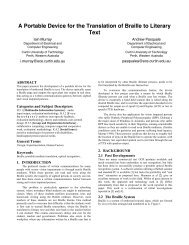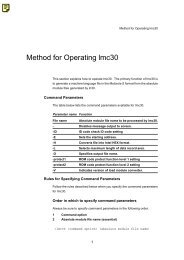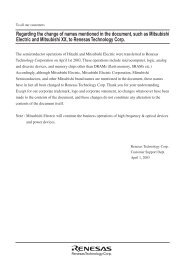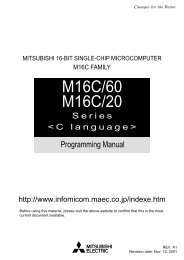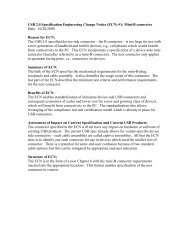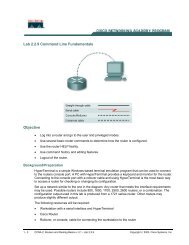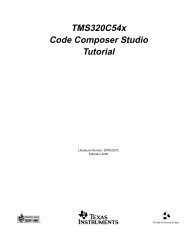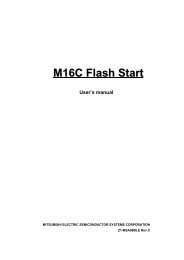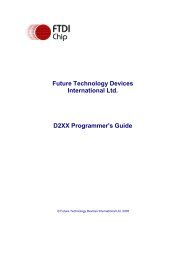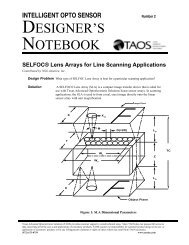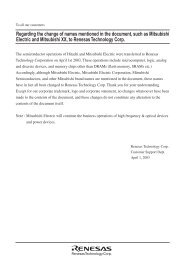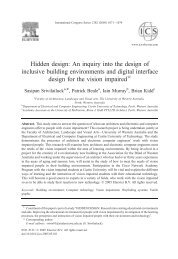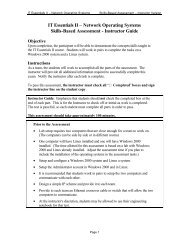"TMS320C55x DSP Library DSPLIB Programmer's Reference"
"TMS320C55x DSP Library DSPLIB Programmer's Reference"
"TMS320C55x DSP Library DSPLIB Programmer's Reference"
You also want an ePaper? Increase the reach of your titles
YUMPU automatically turns print PDFs into web optimized ePapers that Google loves.
ifftrifftFunctionInverse Real FFT (in-place)void rifft (DATA *x, ushort nx, type);(reference cifft.asm)Argumentsx [nx]nxtypePointer to input vector x containing nx real elements. Theunpacki routine should be called to unpack the rfft sequencebefore calling the bit reversal routine. (See examples directoryfor calling sequence)On output, the vector x contains nx complex elementscorresponding to RIFFT(x) or the signal itself.Number of real elements in vector x. nx can take the followingvalues.nx =16, 32, 64, 128, 256, 512, 1024RFFT type selector. Types supported: If type = SCALE, scaled version selected If type = NOSCALE, non-scaled version selectedDescriptionAlgorithmComputes a Radix-2 real DIT IFFT of the nx real elements stored in vector xin bit-reversed order. The original content of vector x is destroyed in theprocess. The first nx/2 complex elements of the IFFT(x) are stored in vectorx in normal-order.(IDFT)See CIFFTSpecial RequirementsThis function should work with unpacki.asm and/or cbrev.asm for properresult. See example in examples/rifft directory.Memory alignment: input data (x) must be aligned at even word boundary.Data memory alignment (referenced rfft.cmd in examples/rfft directory):Alignment of input database address: (n+1) LSBs must be zeros,where n = log 2 (nx).Ensure that the entire array fits within a 64K boundary (the largest possiblearray addressable by the 16-bit auxiliary register).For best performance, the data buffer has to be in a DARAM block.If the twiddle table and the data buffer are in the same block, then theradix-2 kernel is 7 cycles and the radix-4 kernel is not affected.Function Descriptions4-87



